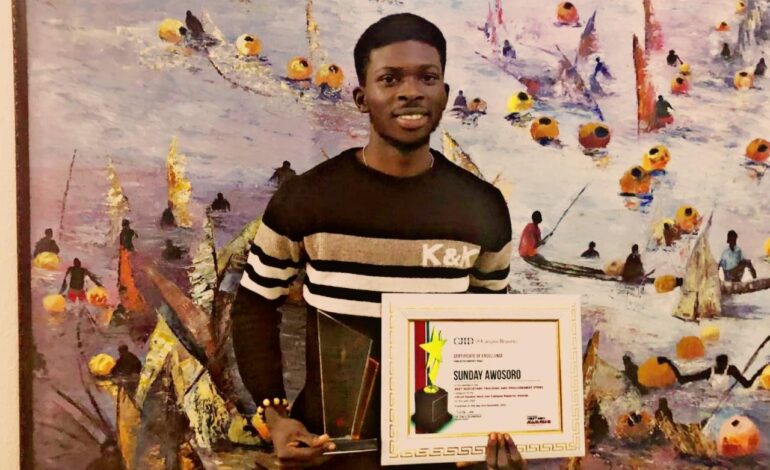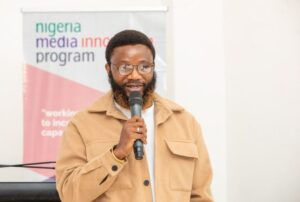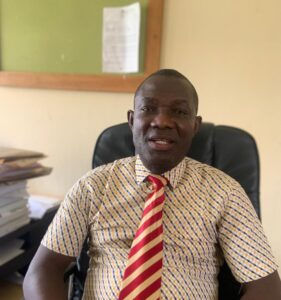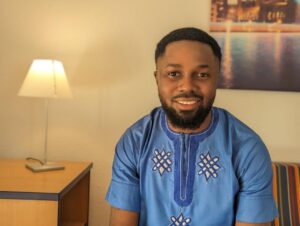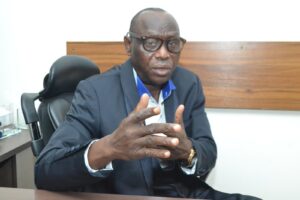Sunday Awosoro of the Federal University, Oye-Ekiti (FUOYE) recently won ‘Best Budgetary Tracking and Procurement story award’ in the Alfred Opubor Next-Gen Award organized by the Center for Journalism Innovation and Development (CJID) and ‘Upcoming writer’ by Youth Digest Campus Journalism in December 2022. The development journalist and fact checker speaks with Peace Oladipo on his two awards, campus journalism and other issues.
Congratulations on the two awards you won at the CJID/Youth Digest Campus journalists award. Were you surprised you won the two?
Oh my! I must appreciate you for celebrating me. And yes, I never expected to win. It caught me by surprise. In fact, to say that I had never applied for any journalism-related award before 2022 is something. However, seeing myself win the two categories simultaneously was indeed fascinating.
What was the focus of the reports that won you the awards and how did you go about making them award-winning?
Interestingly, only one report brought home these recognitions. And while working on it, that it could be “award-winning” never crossed my mind.
At Igbara Odo in Ekiti state, two maternity healthcare centres were constructed with millions of naira of public funds. But since full completion in 2019, they have only been used by bushes, rodents and termites. They have been completely abandoned.
The fact that this has become a norm among Nigerian lawmakers and their constituency projects made me pursue the story. The story focused on the wastage of public funds that happens when lawmakers fail to conduct needs assessments for their constituencies before project nomination. Comparing the work done with the total amount of money earmarked for the two projects. It also revealed the main reason why the facilities have been abandoned in the bush despite full completion.
For the story, I interviewed members of the communities and relevant stakeholders involved in the project. I also reported the solution projected by the stakeholders to revive the facilities and ensure they do not lead to total waste. This report was published in Premium Times on the 18th of May, 2022.
How did you get interested in journalism considering that you are not studying Mass Communication and what has the journey been so far?
I think that it is interesting how many people still feel that you have to possess an undergraduate degree in a particular field before building something from it… While I am still in the line of “communication” with my Education and English Language degree (in view), I have friends like Oluwaferanmi Omoniyi who are thriving in journalism, despite studying Mechanical Engineering.
The journey started in 2019 when the veteran, Adejumo Kabir spent two days at my campus, exposing some members of the Union of Campus Journalists (UCJ-FUOYE) to how powerful a tool journalism could be.
Initially, I attended this training without a tangible interest. But after I joined the association, I realized that I was always excited whenever I have been instructed to work on a report. Especially when it involved moving from one campus to another which would be the biggest of my happiness.

The journey has been adventurous, so far. And it has not been without the “jigi jigi” you experience every day on Nigerian roads.
I am grateful for the days I would fund stories with my little money. I am grateful for days such stories would be considered unworthy of publishing. Volunteering here and there without getting money in return; managing a phone that is no longer “smart” and still delivering reports as one who owned a laptop. But you know, I would say that all of these have built me into becoming who I am today – a better version of me.
Importantly, one thing is common to my progress. I never walked alone and I still do not. I moved with quality people and I still do. I started out with a fellow campus journalist, Precious Ewuji. Together, we would train, advise, travel, challenge ourselves, apply for opportunities bigger than us, mourn rejections and celebrate our wins. Not only that, but having leaders I could reach out to whenever I felt stuck was a lot. My bosses: Iretomiwa Dele-Yusuf, Ayòmídé Agbaje, Ucheena Igwe, Olutaiwo Ayobami, Ajala Samuel and my other leaders have never turned me away whenever I sought their help. Now that I have started testing the waters of the mainstream media, my editor, Kemi Busari and senior colleague, Silas Jonathan are always there to hear me out.
Really, the journey has just begun. And I anticipate the exponential experiences that await me.
READ ALSO: Ben Shemang’s glorious exit from VON
How do you combine your journalism engagements with academics?
Sincerely, it is not easy to work and study. This endeavour is not for the fragile-hearted. The truth is, I not only do journalism. As a student who is responsible for his own feeding, clothing and paying other bills, I am into other menial jobs.
However, engaging in multiple activities as these have trained me to prioritize. Every night, I organize the coming day by making a to-do list. Approaching these tasks with their level of importance, I often end up being productive. But do I always get it right? Of course, no. Whenever I fail to hit my target(s), I pick myself up and look forward to a better next try.
On academics, like I already said, I do not walk alone. I have colleagues like Faith Babatunde who keep me up to date when I skip classes. But once it is exam period, I slow down at work. A study strategy that has been working for me is simple. I study alone and engage in group discussions a day before my papers.
What is the ultimate aim of your journalism career?
I believe in the dream of a better Nigeria. Knowing this, my goal is to contribute to the making of that society, where lawlessness, if not eradicated, is reduced to its barest minimum.
As a fact-checker, do you think Fact-Checking is making the desired impact and changing false narratives?
Absolutely, yes. Did you observe how some of the presidential candidates of the coming election are now using statements like “go and fact-check it?” What about others who now do their homework thoroughly before publicly making claims? You would agree with me that this was not so in the previous election years.
This is therefore a testament that fact-checking is working in Nigeria. At this point, I commend the organization I work with, DUBAWA and others like The Cable, Africa Check, and FactCheckHub for holding onto the call for a better society.
You were with UDEME in 2022. Are the stories on transparency and accountability in governance making any change in the grassroots communities?
I say a profound yes to that. Since its launch, UDEME has “tracked over 4,300 projects in over 2,000 communities across 25 states, sensitizing citizens and getting them actively involved in tracking and monitoring government projects in their localities, with less than 30% implementation results by the government”.
From my direct interactions with monarchical leaders, chiefs and residents of over 20 communities in Ekiti state, I saw the eagerness of the people. But the only problem is ignorance. The grassroots people do not even know that there is something called a “budget” not to talk of how to access or read it.
But if public sensitization can be hugely invested in, from elementary schools to churches, mosques and every aspect that make up a community, then, the people by themselves, would start to hold public office holders accountable.
What’s your advice for young campus journalists to excel?
My advice to the upcoming journalists is this. Whatever you are doing, have a reason for it. Do not be compelled into doing journalism. You may not be productive that way.
As the new President of the Union of Campus Journalists at Federal University, Oye Ekiti, what are your plans to improve on the achievements of your predecessors?
I have started climbing the ladder and I know how rough it is. I have failed and know some of the things that do not work. I have won and trust me, the feeling is great.
My mission, therefore, is to push my people up – equip them with the skills needed and make them known to the world.
Who are your mentors in journalism and why did you choose them?
In this field, I follow many people. I read their works often and sometimes, engage with them. However, I personally am slow when it comes to mentorship. I am still developing myself to understand what it takes to be a mentee. So, I cannot tell you a particular mentor that knows me as his mentee in journalism.
Any other point you would like to make for our readers?
I believe that success is a progression. Provided that you are better than you were yesterday, know that you are doing well. Surely, we can only become better.
